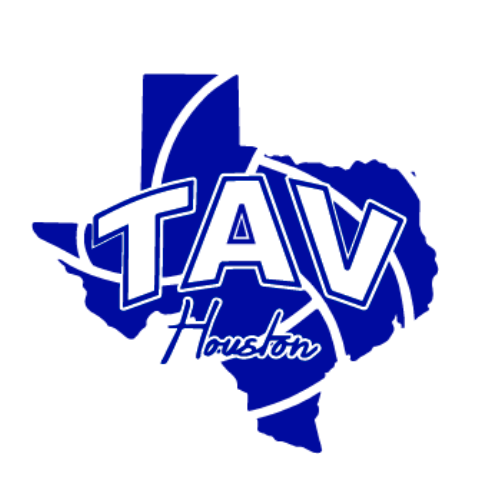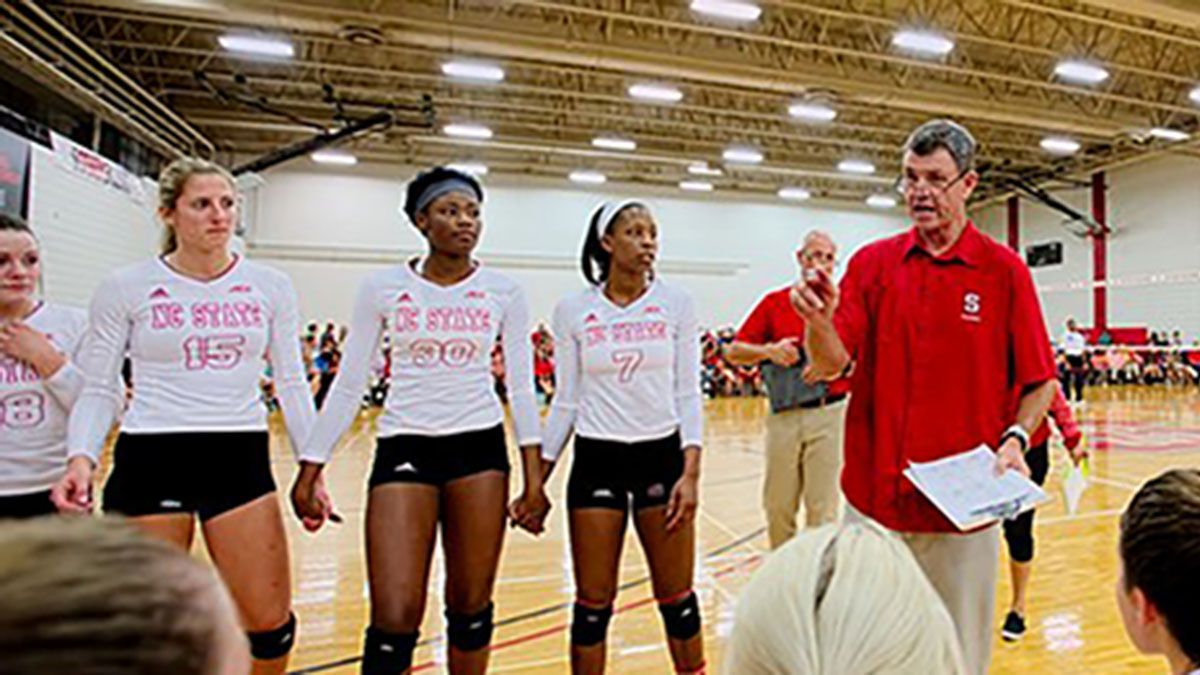281-864-9300
info@tavhouston.com

Our Mission AT
TAV HOUSTON:
we develop student athletes through the pursuit of excellence in competitive volleyball.
TAV houston college recruiting

TAV Director of recruiting - bryan bunn
Bryan Bunn is a 30 year veteran collegiate coach, landing at schools such as Baylor, NC State and North Florida. As a head coach, Bunn coached 18 All-Americans, 38 all-conference players, 32 all-region performers and five conference players of the year. Eleven of his teams have won 23 or more matches, with four squads finishing in the top 10 nationally. Bunn coached six teams to the NCAA I Tournament and two NAIA teams to the Championships.
Email Bryan Bunn for any recruiting questions.
bbunn@tavhouston.com
THE RECRUITING PROCESS BY BRYAN BUNN
The recruiting process can be very daunting and is new to most people. The following timeline and guide will be helpful in understanding and getting the most out of your time and commitment. I, Bryan Bunn, am here to help you with the process and help set up a recruiting plan designed specifically for each player and family. Ultimately, finding the right program will be dependent on the following: Skill level, work ethic, desire, how good of a teammate you are and
(the one thing out of your control) a program’s needs in your graduating class.
The most important thing a high school freshman hoping to play college volleyball can do is not focus on college recruiting. Despite the fact that the start of freshman year marks an athlete’s official inauguration as a “prospective student-athlete,” the amount of contact a college coach can have during freshman year is extremely limited. The National Collegiate Athletic Association, the official governing body for college athletics in the United States, has many restrictions to protect the student-athlete.
Freshman year is stressful enough without the added burden of obsessing about recruiting. Also, there are few (if any) freshmen who are mature enough to make such an important decision. The best thing a freshman can do to increase the chances of being recruited in the future is to focus on improving.
Also, get your Sportsrecruits.com profile set up and practice putting videos together and forming highlight videos. Set up your free profile on Universityathlete.com. as well. Most universities use this software in the recruiting process to track athletes at tournaments in terms of when and where they are playing.
Here is a summary of what the NCAA guidelines allow for freshman year:
Questionnaires: Schools are allowed to send out questionnaires to prospective student-athletes requesting more information about the player.
The college questionnaire has become increasingly popular as a way for college teams to gather information for their database. However, it is not a sign that a given school is seriously recruiting you. While it’s certainly nice to receive an introduction letter or questionnaire, you can’t put too much stock in them because college coaches don’t. Don’t let a piece of paper, or lack of one, spoil what should be a relaxed time in your volleyball life.
Camp brochures: Schools are allowed to send out brochures for any skills camps or clinics. Many colleges hold camps on campus during the summer. This is an excellent opportunity to visit the campus and get a feel for the coaching staff while still improving your skills.
Telephone calls: NO contact via phone until June 15 following Sophomore year.
Sophomore year means it’s time to slightly turn up the intensity. Even though you are a year older, the NCAA still views you, in terms of restrictions, much in the same way they view freshmen. So the amount of contact you can have with a coach is still limited. However, what you can do is make sure you are giving yourself the best opportunity to be seen by college coaches.
Make sure your Sportsrecruit profile is set up. Have all of your information posted as well as up-to-date videos. Contact desired colleges with an introductory e-mail.
The NCAA regulations for a sophomore in high school are the same as they are for a freshman.
Coaches can begin contacting PSA’s June 15 between Soph/Jr years. If you do not get contacted immediately, there is no need to worry. The process can take a long time and be very frustrating/humbling, but anything worth achieving is difficult ??
Junior year of high school is generally regarded as the most crucial period of the recruiting process. The NCAA greatly expands the amount of contact coaches can have with prospective student-athletes during this important time. That being said, the athlete should have a recruiting plan in place before the start of the school year. If you are unsure how to proceed, please contact Bryan Bunn and he will meet with you to set up a plan.
A good recruiting plan will save time and help you keep track of which schools have expressed interest. There are several important dates to keep in mind when composing your recruiting plan. So if you would like some assistance feel free to reference our guide on the topic.
Once you have a solid recruiting plan in place, the next thing to focus on is playing your best throughout the club season. There are hundreds of coaches at some of the national tournaments, so playing hard always is the best way to ensure that a coach sees you at your best. As the club season progresses, colleges will begin to recruit athletes more seriously. January/February of this year, some schools may extend scholarship offers to players that they feel can help their program. If April/May rolls around and you still have not had much contact with the schools you targeted in your recruiting plan, it’s time to re-evaluate your situation.
Here is the summary of what the NCAA allows during an athlete’s junior year of high school:
- Recruiting materials: College coaches may begin sending out recruiting materials (school brochures or letters expressing interest) June 15 after Soph year.
- Telephone calls: After June 15, coaches may call prospective student athletes, but no more than once a week.
- Off-campus contact: Coaches are allowed a limited number of off-campus contacts with athletes after Sept 1.
- Unofficial visits: Athletes can make an unlimited number of unofficial visits to schools beginning August 1.
By your senior year, you should have a good idea of how the process works. If you haven’t made a commitment yet, DO NOT PANIC! If you want to play in college, your SR year is a great time to find out who is really interested and what the best fit for you will be 😊. You will need to widen your search and explore some schools that weren’t on your initial search, but you will find the right fit if you stay diligent and keep an open mind.
There is no difference in the rules regarding a Jr and Sr in High School.
Key Tips
The four most important tips we want every high school volleyball player to understand are:
- Work hard in the classroom and study hard for the SATs / ACTs. The better your grades are and the higher your board scores are, the more schools that can recruit you. The more schools that can recruit you, the more options you have. The more options you have, the less stressful the recruiting process will be.
- Be realistic about your ability. The number of players that play at the top Division 1 schools is a very small percentage of the number of college volleyball players across Division I, Division II, Division III, NAIA, and NJCAA. Being realistic about your ability from the beginning will make the recruiting process a lot less stressful and ultimately more rewarding. If you are unsure, talk with your coach or contact Bryan Bunn for some advice.
- Do not pick a college just because you can play volleyball there. Choose a college or university that is a good fit for you academically as well as athletically. Use volleyball as a vehicle to get you into the best college possible.
- BE PROACTIVE IN THE RECRUITING PROCESS. Just like anything else, the harder you work, the better your results will be. Create a profile on Sportsrecruits.com and send your profile to every school you are interested in. The more you put into the recruiting process, the more you will get out of it.
